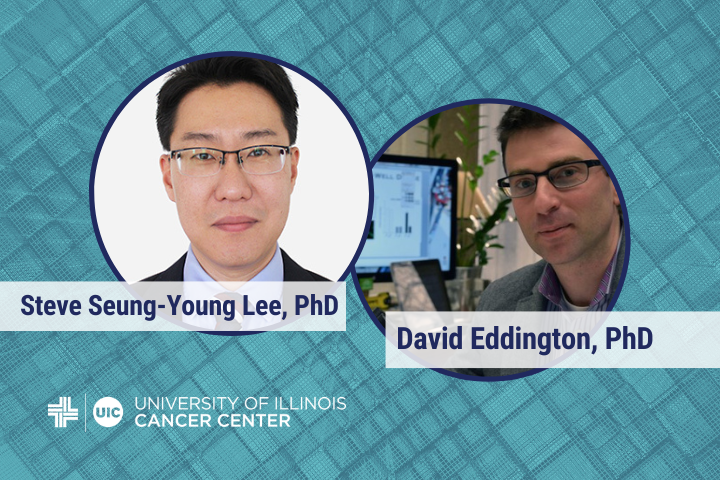
Two researchers from the University of Illinois Cancer Center are corresponding authors on a new report published by the journal PLOS One on the development of a microfluidics chip enabling in-depth cellular and molecular testing and screening of drug molecules in blood flow-mimicking conditions.
Cancer Center members Steve Seung-Young Lee, PhD, part of the Translational Oncology research program, and David Eddington, PhD, part of the Cancer Biology research program, were part of a team of researchers from the University of Illinois Chicago behind the study, “Spatially Selective Cell Treatment and Collection for Integrative Drug Testing Using Hydrodynamic Flow Focusing and Shifting.”
Microfluidics is a technology used in biomedical and pharmaceutical research because a microfluidic device can house live cells and offer a miniaturized in vitro platform for cell biology and cell-based drug testing, according to the study.
“In this study, we demonstrated hydrodynamic focusing and shifting as an advanced microfluidics approach for cell-based drug testing. Our optimized microfluidics device can readily control the path of a drug or reagent solution over the culture chamber for spatially selective delivery to cells. It is also capable of growing millions of cells by providing a large culture chamber,” the authors concluded.
